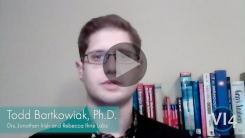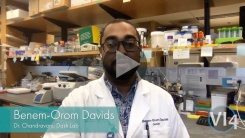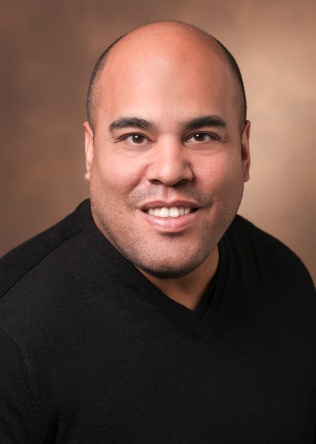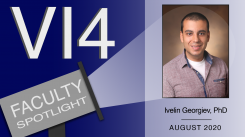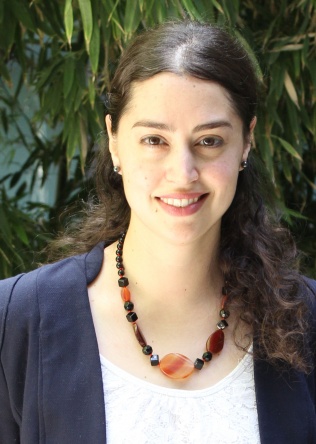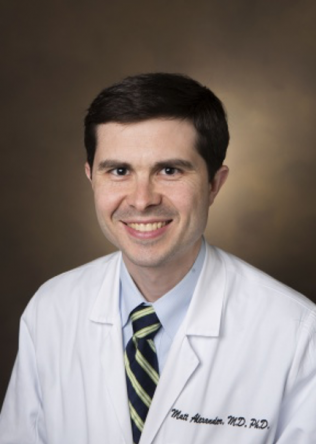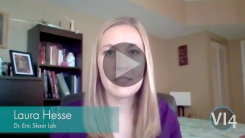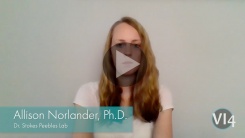Postdoc Spotlight: Todd Bartkowiak, PhD
Graduate Student Spotlight: Benem-Orom Davids
Cinque Soto, Ph.D.
Dr. Soto received his PhD in molecular biophysics from Columbia University's School of Medicine. After receiving his PhD, Cinque went on to carry out postdoctoral studies at the University of Pennsylvania's School of Medicine where he developed computational methods for in silico modeling and design of helical transmembrane proteins. Following his postdoctoral studies, Cinque took a senior scientist position at SCHRODINGER, a computational software company, where he worked on the development of small-molecule docking methods for in silico drug design. In 2013, Cinque left the software industry to become co-head of the structural bioinformatics core section (SBIS) at NIAID’s Vaccine Research Center (VRC). At the VRC, Cinque focused on analyzing antibody repertoires from next-generation sequencing (NGS). Cinque continues working on the development of bioinformatics methods for analyzing antibody and T cell receptor repertories at the Vanderbilt Vaccine Center.
Faculty Spotlight: Ivelin Georgiev, Ph.D.
Marjan Rafat, PhD
Our research combines engineering and biomedical science to elucidate the mechanisms driving breast cancer recurrence and metastasis. Our laboratory examines the relationship between tumor cells, normal tissues, and the immune system to better understand how each component contributes to metastasis and relapse after therapy. Specifically, we study the collateral effect of radiation and surgery of normal tissues on tumor and immune cell migration patterns, inflammatory responses following tissue damage, and changes in extracellular matrix remodeling of the tumor microenvironment and surrounding normal tissues resulting from therapy. We analyze the physical, chemical, and biological cues that influence cancer metastasis and recurrence to make discoveries at the interface of engineering and medicine.
Publications on 
Breast cancer; Cell motility and migration; Normal tissue response to radiation; Tumor microenvironment; Immune modulation
Matt Alexander, MD, PhD
Dr. Alexander’s laboratory is focused on the role of adaptive immunity in the pathogenesis of hypertension and associated cardiovascular disease. Current projects are focused on the role of counter-regulatory immune mechanisms in hypertension, including determining the role of novel regulatory T cell subsets in the pathogenesis of hypertension and microvascular dysfunction. We perform cutting edge basic and translational research integrating vascular biology and immunology using a variety of approaches including molecular biology, physiology, highly dimensional single cell analysis, and human genetics. Our laboratory is also integrated with the translational research infrastructure in the Divisions of Clinical Pharmacology and Cardiovascular Medicine to enable novel studies on human tissues and cells. Ultimately, the goal of Alexander laboratory is to fundamentally advance our understanding of hypertension and related cardiovascular diseases to develop new therapies for the benefit of the tremendous number of individuals affected by these conditions.
Publications on 
Hypertension, cardiovascular disease, immunology, vascular biology

